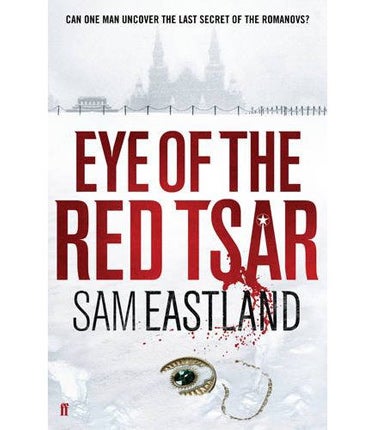Eye of the Red Tsar, By Sam Eastland
Fast-paced but flawed Russian tale

I suffer from severe Romanovitis. The literary sub-genre which suggests that Anastasia or the Tsarevitch or any other of those foolish, diseased, superstitious dynastic epigones might have made it out of the cellar in Ekaterinburg brings me out in hives.
So Sam Eastland had a way to go in getting me through this novel, which introduces the Finnish-born Inspector Pekkala, once the Tsar's favourite detective, known as the "Emerald Eye".
During the Revolution, Pekkala attempts to escape but is hauled off the train and imprisoned. He is later reprieved from a Siberian gulag by the "Red Tsar" – Stalin – and ordered to investigate the deaths of the Imperial family and locate the treasure believed to have been hidden by the somewhat unchallenging intellect of Nicholas II. Was there a survivor who holds the secret?
There are a lot of twists on the way, including Pekkala's reunion with a long-lost brother who works for the other side. The fast-moving narrative kept me reading, as did the author's feeling for Russia, the descriptions of life in the Siberian outback and the nightmare conditions of Stalin's prisons. The deaths of the Romanovs are well recounted and plausibly reconstructed. Tension builds as the detective analyses the last moments of the doomed family.
But though novelists are entitled to do what they want with the raw material of history, there are limits. I was a bit perturbed when the Czech Legion was described as composed of Austrians or Hungarians (they were Czechs or Slovaks) and identified with the White Army (they sided with anyone who would help them get home). More serious was the depiction of the Tsar as the sort of kindly suburban neighbour who would offer a loan of his Flymo.
This Nicholas is just too nice. Giving Stalin the title of the "Red Tsar" is presumably intended to indicate some sort of equilibrium between the two rulers and the lack of this undermines the structural balance of the book. Sorry, Sam – I'd have shot the lot.
Subscribe to Independent Premium to bookmark this article
Want to bookmark your favourite articles and stories to read or reference later? Start your Independent Premium subscription today.

Join our commenting forum
Join thought-provoking conversations, follow other Independent readers and see their replies